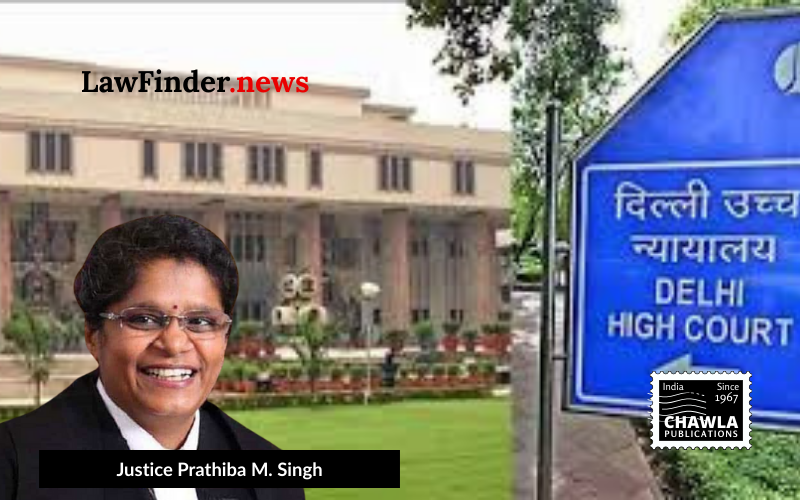Court affirms binding nature of Shareholders Agreement and Arbitral Tribunal’s jurisdiction to direct share transfers despite challenges citing corporate law jurisdiction and public policy concerns
In a landmark judgment dated 1st September 2025, the Delhi High Court, presided over by Justice Prathiba M. Singh, upheld the enforceability of two foreign arbitral awards passed by the International Chamber of Commerce (ICC) International Court of Arbitration. The awards pertain to a protracted commercial dispute involving the shareholding and management of International Trade Expo Centre Limited (ITEL), a joint venture company equally owned by Roger Shashoua and Mukesh Sharma through their respective entities.
The dispute originated from a Shareholders Agreement (SHA) dated 1st July 1998, which set out the framework for governance, shareholding, and dispute resolution for ITEL. The SHA included a broad arbitration clause covering disputes relating to validity, interpretation, implementation, or breach of the agreement. The SHA also contained a deadlock resolution mechanism that allowed unresolved issues at board or shareholder meetings to be referred to arbitration.
Following a breakdown in relations and allegations of mismanagement and competing business activities, the Petitioners invoked arbitration under the SHA. The ICC Arbitral Tribunal, after extensive proceedings, including four awards between 2007 and 2011, directed Mukesh Sharma and entities controlled by him to transfer their shares in ITEL to the Petitioners. The Tribunal found that the Respondents had breached the SHA, manipulated share allotments, and caused a deadlock in management, justifying the transfer of shares as a remedy within the contractual and arbitration framework.
The Respondents challenged the enforcement of the awards in Indian courts on multiple grounds, including the Tribunal exceeding its jurisdiction by ordering share transfers (an act argued to fall under the exclusive jurisdiction of the Company Law Board/National Company Law Tribunal), violation of public policy, lack of a binding arbitration agreement with certain entities, and procedural irregularities.
The Delhi High Court extensively analyzed the SHA, the arbitration clause, the concept of assigns and nominees bound by the agreement, and the factual matrix demonstrating the binding nature of the SHA despite the “preliminary and tentative” label initially affixed to the draft. The Court held that the arbitration clause was wide enough to cover all disputes, including share transfers resulting from deadlocks. It rejected the Respondents’ contention that the Tribunal usurped corporate law jurisdiction, clarifying that contractual breaches within the SHA were arbitrable and that the Tribunal’s relief flowed from the contract’s terms.
On limitation, the Court accepted the Petitioners’ plea for condonation of delay, acknowledging the legal uncertainties over the enforceability of foreign awards during pendency of challenges under Section 34 of the Arbitration and Conciliation Act, 1996, which were ultimately held to be not maintainable in this case by the Supreme Court in a 2017 judgment.
Further, the Court underscored the narrow scope for judicial interference in enforcement of foreign awards under Section 48 of the Arbitration and Conciliation Act, 1996, reflecting India’s obligations under the New York Convention. It emphasized that public policy exception is to be construed restrictively and does not permit re-examination of merits or equitable objections unless the award shocks the conscience or violates fundamental Indian legal policy.
The Court also recognized the evolving jurisprudence allowing arbitral tribunals to consider commercial realities and equitable principles within the confines of the contract and the Arbitration Act. It held that the Tribunal’s direction of share transfers was a pragmatic and justified resolution of an irreconcilable deadlock, not an unlawful expropriation.
Accordingly, all objections to enforcement filed by the Respondents were dismissed with costs, and the foreign awards, including the partial final award dated 5th January 2010 and the final award dated 1st August 2011, were declared enforceable as decrees of the Court. The Court also disposed of related interlocutory applications and directed further proceedings as necessary.
This judgment affirms the robust framework for enforcement of international commercial arbitration awards in India, reinforcing the sanctity of arbitration agreements and the limited role of courts in revisiting arbitral findings, especially in complex shareholder and joint venture disputes involving multinational elements.
Bottom Line:
Enforcement of foreign arbitral awards arising out of a Shareholders Agreement with broad arbitration clause and relief relating to transfer of shares in an Indian joint venture company.
Statutory provision(s): Arbitration and Conciliation Act, 1996 Sections 7, 14, 16, 28, 44, 46, 47, 48, 49; Companies Act, 1956 Sections 397, 398; Limitation Act, 1963 Articles 136, 137; Code of Civil Procedure, 1908 Section 44A Explanation 2
Roger Shashoua v. Mukesh Sharma, (Delhi) : Law Finder Doc id # 2771815




